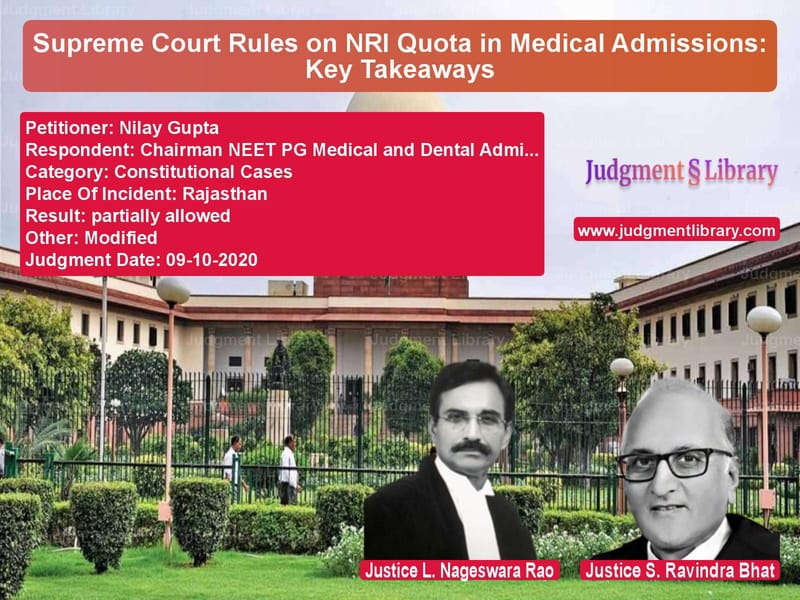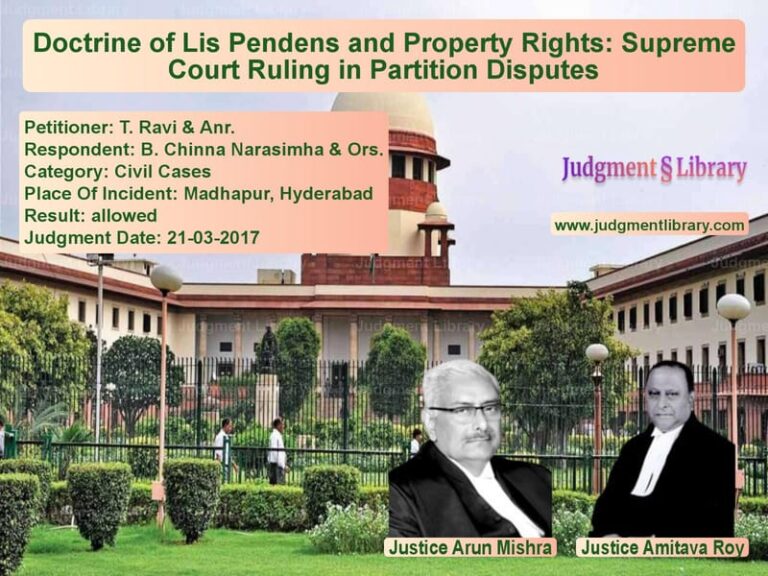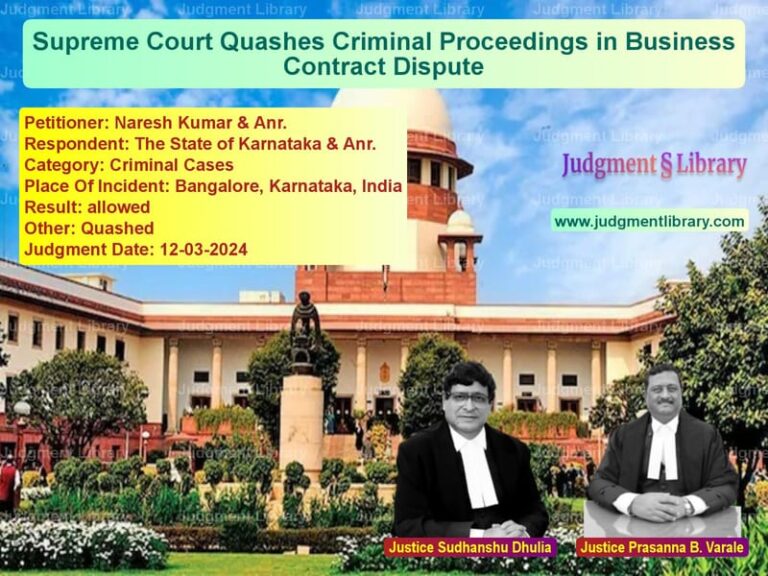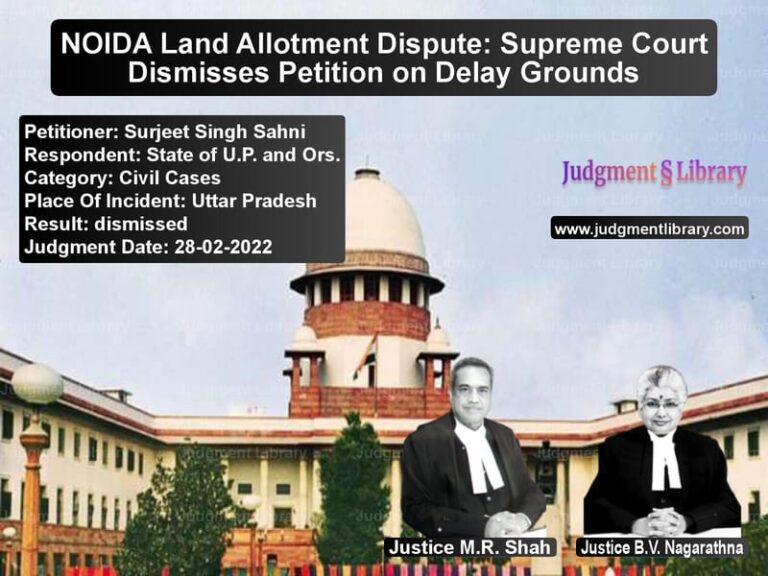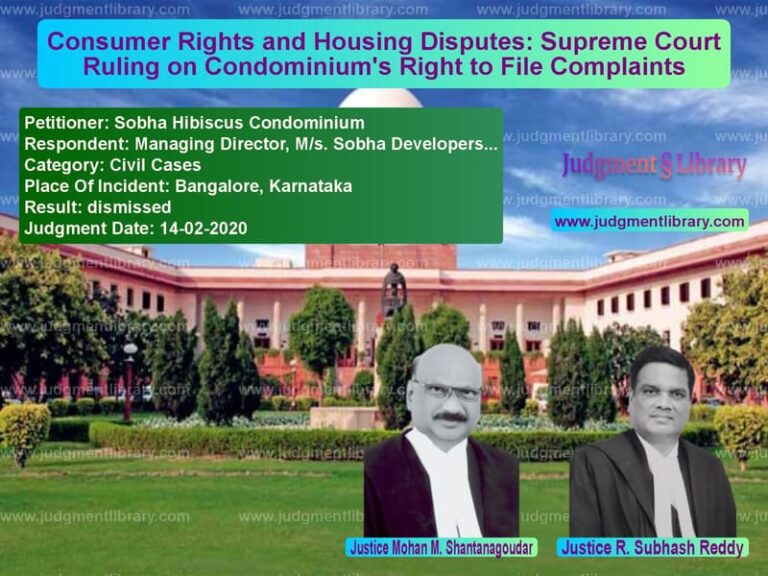Supreme Court Rules on NRI Quota in Medical Admissions: Key Takeaways
The case of Nilay Gupta vs. Chairman NEET PG Medical and Dental Admission/Counselling Board 2020 revolves around the contentious issue of whether private medical colleges can unilaterally eliminate the Non-Resident Indian (NRI) quota during the ongoing admission process. This Supreme Court judgment addresses the legality of such a decision and its implications for affected students.
The ruling reinforces the importance of procedural fairness in medical admissions and clarifies that while private institutions have discretion in allocating NRI quotas, any decision to abolish or modify such quotas should be done transparently and with adequate notice to prospective applicants.
Background of the Case
The appellant, Dr. Nilay Gupta, along with other petitioners, challenged the decision of the Rajasthan NEET PG Counselling Board and Mahatma Gandhi Medical College (MGMC), which eliminated the NRI quota for postgraduate medical and dental admissions for the academic year 2020-21.
Key events:
- In March 2020, a meeting of the PG Counselling Board was held, attended by representatives from various medical colleges, where it was decided that 15% of seats would be reserved for NRI candidates.
- The NEET PG examination results were declared on 31 January 2020, after which students, including the appellants, applied for admission under the NRI quota.
- On 10 April 2020, the Board published a notification listing the admission schedule, including a verification process for NRI candidates.
- However, on 13 April 2020, a revised seat matrix was released, indicating that there would be no NRI seats available that year.
- On 14 April 2020, an official statement confirmed that all NRI seats would now be considered as part of the management quota.
- The appellants challenged this decision before the Rajasthan High Court, which ruled in their favor, directing that they be granted admission under the NRI quota.
- The decision was later overturned by a Division Bench of the Rajasthan High Court, prompting the petitioners to appeal to the Supreme Court.
Petitioner’s (Dr. Nilay Gupta and Others) Arguments
The petitioners, represented by senior advocate V. Giri, argued:
- The abrupt removal of the NRI quota was arbitrary and unfair, as students had already applied and relied on the earlier seat matrix.
- The Board and private colleges had previously assured NRI applicants of seat availability, and the sudden policy change violated the principles of legitimate expectation.
- They cited the Supreme Court ruling in P.A. Inamdar vs. State of Maharashtra, which recognized the legitimacy of the NRI quota in private institutions.
- The policy change deprived NRI candidates of the opportunity to seek admission elsewhere, as the modification was announced at the last moment.
Respondents’ (State of Rajasthan and Private Colleges) Arguments
The respondents, represented by Additional Advocate General Manish Singhvi, countered:
- The Supreme Court ruling in P.A. Inamdar allows private colleges to choose whether to offer an NRI quota; it is not mandatory.
- Given the COVID-19 pandemic, there was a risk that NRI seats would remain unfilled, so private colleges opted to merge them with the general management quota.
- The decision was made collectively by private colleges and was not arbitrary.
- All NRI applicants were considered for management quota seats based on their NEET ranking, ensuring that merit was upheld.
Supreme Court’s Observations and Judgment
The Supreme Court, led by Justices L. Nageswara Rao and S. Ravindra Bhat, made the following key observations:
- NRI quota is discretionary: While institutions have the right to allocate up to 15% of seats to NRI candidates, it is not a mandatory requirement.
- Timing of the decision was problematic: The abrupt removal of the NRI quota after students had already applied created unnecessary hardship.
- Fair notice should be given: Institutions must announce such policy changes well in advance to allow students to make informed choices.
- Balancing equity and merit: The Court acknowledged that the decision had affected both NRI applicants and management quota candidates and sought a fair resolution.
Final Judgment
The Supreme Court ruled:
- The deletion of the NRI quota was within the discretion of private colleges, but the timing of the decision was unfair.
- A special counseling session should be conducted to reallocate seats to affected NRI candidates based on merit.
- Students who were granted admission under the single judge’s order will be allowed to retain their seats.
- The decision of the Division Bench was partially modified to ensure that no student is unfairly disadvantaged.
Conclusion
This ruling reaffirms the right of private institutions to manage their own admission policies while ensuring that such decisions do not cause undue hardship to students. The Supreme Court’s intervention ensures fairness in the admission process, setting a precedent for future cases involving sudden policy changes in educational institutions.
Petitioner Name: Nilay Gupta.Respondent Name: Chairman NEET PG Medical and Dental Admission/Counselling Board 2020.Judgment By: Justice L. Nageswara Rao, Justice S. Ravindra Bhat.Place Of Incident: Rajasthan.Judgment Date: 09-10-2020.
Don’t miss out on the full details! Download the complete judgment in PDF format below and gain valuable insights instantly!
Download Judgment: Nilay Gupta vs Chairman NEET PG Med Supreme Court of India Judgment Dated 09-10-2020.pdf
Direct Downlaod Judgment: Direct downlaod this Judgment
See all petitions in Fundamental Rights
See all petitions in Constitution Interpretation
See all petitions in Judgment by L. Nageswara Rao
See all petitions in Judgment by S Ravindra Bhat
See all petitions in partially allowed
See all petitions in Modified
See all petitions in supreme court of India judgments October 2020
See all petitions in 2020 judgments
See all posts in Constitutional Cases Category
See all allowed petitions in Constitutional Cases Category
See all Dismissed petitions in Constitutional Cases Category
See all partially allowed petitions in Constitutional Cases Category

